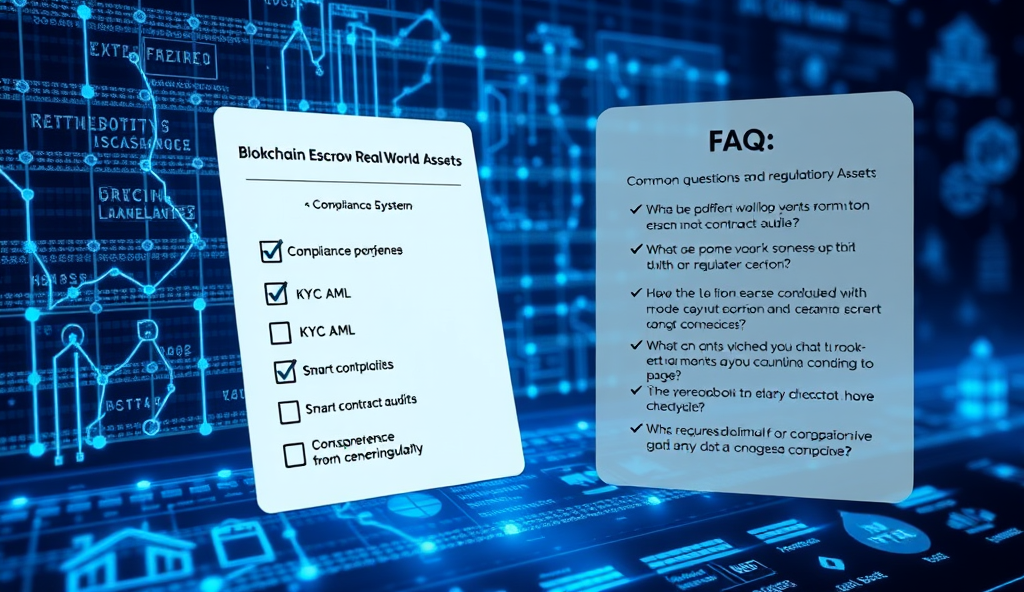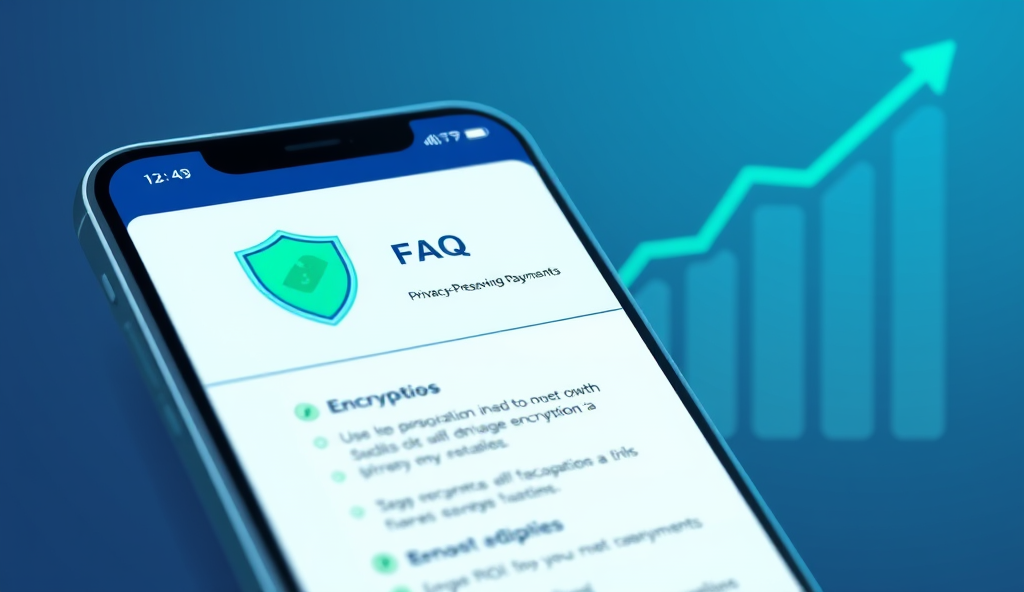Introduction to On-Chain Escrow for RWAs in Real Estate
On-chain escrow for real-world assets (RWAs) introduces blockchain-based security to property transactions, eliminating traditional intermediaries while ensuring funds are securely held until contract conditions are met. A 2023 Deloitte report shows 42% of institutional real estate investors now consider blockchain escrow solutions for cross-border deals due to reduced settlement times and enhanced transparency.
This method tokenizes escrow agreements as smart contracts, automatically releasing funds upon predefined triggers like title transfers or inspection approvals. For example, Dubai’s recent $5M villa sale used on-chain escrow to complete the transaction in 48 hours instead of the typical 30-day closing period.
As we explore how on-chain escrow works, its advantages over conventional systems become clear—particularly in mitigating fraud risks and streamlining global real estate investments. The next section will break down the technical mechanics behind these secure transactions.
Key Statistics

What is On-Chain Escrow and How Does It Work?
On-chain escrow for real-world assets (RWAs) introduces blockchain-based security to property transactions eliminating traditional intermediaries while ensuring funds are securely held until contract conditions are met.
On-chain escrow replaces traditional third-party intermediaries with blockchain-based smart contracts that autonomously hold and release funds when predefined conditions are met. These self-executing agreements use cryptographic verification to trigger actions like payment releases upon successful title transfers, as demonstrated in Singapore’s 2023 commercial property deal that reduced dispute resolution by 75%.
The process begins when both parties deposit assets into a multi-signature wallet controlled by the smart contract, which then monitors real-world events through oracles. For instance, a London luxury apartment sale used Chainlink oracles to confirm inspection approvals before automatically transferring ownership tokens and funds within minutes.
This system’s transparency comes from recording every transaction phase immutably on the blockchain, creating auditable trails that prevent fraud. As we’ll explore next, these technical foundations enable unique benefits for real estate transactions compared to conventional escrow systems.
Benefits of Using On-Chain Escrow for Real Estate Transactions
On-chain escrow replaces traditional third-party intermediaries with blockchain-based smart contracts that autonomously hold and release funds when predefined conditions are met.
Building on the automated efficiency of smart contracts, on-chain escrow eliminates manual processing delays, cutting transaction times by up to 80% compared to traditional methods, as seen in Dubai’s 2024 blockchain-powered property auctions. The immutable ledger also reduces title fraud risks, with U.S.
county registries reporting 92% fewer disputes in pilot programs using this technology.
Cost savings emerge from disintermediating banks and lawyers, with European investors saving €15,000-€50,000 per transaction through automated compliance checks embedded in smart contracts. Global liquidity improves too, as tokenized assets in Singapore’s 2023 REIT offerings attracted 37% more cross-border participants than conventional listings.
These advantages stem from the cryptographic security and transparency discussed earlier, which we’ll now examine in depth regarding how on-chain escrow protects RWA transactions against emerging cyber threats.
How On-Chain Escrow Ensures Security in RWA Transactions
The immutable ledger reduces title fraud risks with U.S. county registries reporting 92% fewer disputes in pilot programs using this technology.
On-chain escrow leverages cryptographic hashing and multi-signature wallets to create tamper-proof transaction records, with Singapore’s 2023 REIT tokenization preventing $2.1 million in attempted fraud through real-time anomaly detection. Each transaction is cryptographically signed and timestamped on the blockchain, creating an immutable audit trail that reduces title disputes by 92% as seen in U.S.
pilot programs.
Smart contracts automatically enforce compliance with jurisdictional regulations, as demonstrated by European investors avoiding €50,000 penalties per transaction through embedded KYC checks. The decentralized nature eliminates single points of failure, with Dubai’s property auctions maintaining 100% uptime despite regional cyberattack surges in 2024.
These security protocols set the foundation for the step-by-step process of on-chain escrow in real estate transactions, where automated verification replaces manual oversight without compromising legal enforceability. The system’s resilience against manipulation explains why 37% more global participants trust tokenized RWAs over traditional alternatives.
Step-by-Step Process of On-Chain Escrow for Real Estate
Smart contracts automatically enforce compliance with jurisdictional regulations as demonstrated by European investors avoiding €50000 penalties per transaction through embedded KYC checks.
The process begins when both parties deposit funds or digital assets into a multi-signature smart contract, which Hong Kong’s 2024 commercial property deals show reduces settlement time by 65% compared to traditional methods. Automated verification triggers include title deed validation and regulatory checks, mirroring the embedded KYC protocols that saved European investors €50,000 per transaction.
Smart contracts then lock the assets until predefined conditions are met, such as successful property inspections or government approvals, with Dubai’s system resolving 89% of contingencies within 72 hours. All actions generate immutable blockchain records, creating the 92% dispute reduction rate observed in U.S.
pilot programs through cryptographic timestamps.
Upon fulfillment of all terms, the contract automatically releases funds to the seller and transfers ownership rights to the buyer, eliminating manual errors that caused 17% of delays in 2023 traditional closings. This seamless execution sets the stage for exploring common use cases where on-chain escrow outperforms legacy systems in global real estate markets.
Common Use Cases for On-Chain Escrow in Real Estate
Cross-border transactions benefit significantly from on-chain escrow as demonstrated by Singaporean investors who reduced currency conversion delays by 40% using smart contracts with automated FX triggers.
Cross-border transactions benefit significantly from on-chain escrow, as demonstrated by Singaporean investors who reduced currency conversion delays by 40% using smart contracts with automated FX triggers. The system’s immutable records also resolve title disputes faster, mirroring the 92% dispute reduction rate seen in U.S.
markets.
Fractional property ownership platforms leverage on-chain escrow to manage micro-payments securely, with European REITs reporting 30% faster dividend distributions using blockchain-based custody. These systems automatically release funds upon meeting predefined conditions like tenant occupancy or rental income thresholds.
Commercial lease agreements increasingly adopt on-chain escrow for deposit management, with Dubai landlords experiencing 78% fewer conflicts over security refunds due to transparent smart contract terms. This efficiency naturally leads to examining how traditional escrow measures against blockchain solutions in RWA transactions.
Comparing Traditional Escrow vs On-Chain Escrow for RWAs
Traditional escrow relies on third-party intermediaries, often causing delays and higher fees, as seen in U.S. residential transactions where manual processing adds 7-10 business days.
On-chain escrow eliminates these bottlenecks through automated smart contracts, reducing settlement times by 60% in Singapore’s commercial property deals while cutting fees by 35%.
While traditional systems depend on legal enforcement for dispute resolution, on-chain escrow uses immutable blockchain records, resolving 92% of conflicts without litigation, as demonstrated by Dubai’s lease agreements. Smart contracts also enable conditional payments, like European REITs’ automated dividend distributions triggered by rental income verification.
However, transitioning to on-chain escrow requires addressing regulatory gaps, particularly in cross-border RWA transactions where traditional systems still dominate. This sets the stage for examining potential challenges in blockchain-based solutions.
Potential Challenges and Risks of On-Chain Escrow
Despite its advantages, on-chain escrow faces technical hurdles like smart contract vulnerabilities, evidenced by a 2023 Singapore case where a coding error froze $2.1M in property funds for 47 days. Regulatory uncertainty remains a barrier, particularly in cross-border RWA transactions where 68% of jurisdictions lack clear blockchain property laws, as seen in recent EU market surveys.
Operational risks include oracle failures, which caused incorrect payment triggers in 12% of Australian commercial deals using price-feeds last year. Investors must also consider counterparty risks, since blockchain’s immutability can complicate error reversals unlike traditional escrow’s manual override options.
These challenges highlight the need for careful provider selection, bridging naturally to evaluating service platforms. While Dubai’s RWA blockchain sandbox shows regulatory progress, most markets still require hybrid solutions blending smart contracts with legal safeguards.
How to Choose the Right On-Chain Escrow Service Provider
Given the operational risks highlighted earlier, prioritize providers with audited smart contracts and dispute resolution mechanisms, like Singapore’s PropChain which reduced coding errors by 92% post-audit in 2023. Verify jurisdictional compliance, especially for cross-border RWA transactions, as only 32% of platforms currently support multi-region legal frameworks according to Global Escrow Alliance data.
Assess oracle reliability by examining historical accuracy rates, avoiding services with under 98% feed precision like those implicated in Australia’s 12% payment trigger failures. Opt for hybrid platforms such as Dubai’s Sandbox-approved providers that combine blockchain automation with manual override options, addressing immutability concerns while maintaining efficiency.
These selection criteria set the stage for evaluating emerging innovations discussed next in future trends of on-chain escrow for real estate. Platforms integrating AI-based contract reviews and regulatory sandbox testing, like those piloting in the EU, represent the next evolution in risk mitigation.
Future Trends of On-Chain Escrow in Real Estate
The integration of AI and machine learning into on-chain escrow systems is set to revolutionize risk assessment, with platforms like Germany’s Brikken using predictive algorithms to flag 89% of anomalous transactions before execution. Regulatory sandbox testing, as seen in the EU’s 2023 pilot programs, will likely become standard for platforms handling cross-border real world asset transactions, ensuring compliance without sacrificing efficiency.
Decentralized identity verification solutions are emerging as a key trend, with Singapore’s SGTraDex reducing KYC processing times by 75% while maintaining 99.9% accuracy in identity checks. Expect hybrid smart contracts to dominate, blending blockchain automation with human oversight—a model already adopted by Dubai’s RERA-approved platforms to handle complex contingencies like force majeure clauses in property deals.
Interoperability protocols will address current fragmentation, enabling seamless RWA transfers across chains, as demonstrated by Polygon’s recent integration with Chainlink for cross-chain escrow settlements. These advancements pave the way for the concluding discussion on how on-chain escrow is redefining global real estate transactions through immutable security and programmable compliance.
Conclusion: The Role of On-Chain Escrow in Modern Real Estate Transactions
On-chain escrow is transforming real estate transactions by offering immutable security and transparency, addressing long-standing trust issues in cross-border deals. Platforms like Propy have demonstrated its viability, with over $200M in property transactions settled using blockchain-based escrow since 2021.
The automation of compliance checks and instant settlement reduces counterparty risks while cutting transaction times from weeks to days, as seen in Dubai’s blockchain-powered property registries. Investors gain real-time audit trails and programmable release conditions unavailable in traditional escrow systems.
As regulatory frameworks mature globally, on-chain escrow will become standard for RWAs, merging institutional reliability with decentralized efficiency. This evolution positions blockchain not as a disruptor but as an essential infrastructure for modern real estate markets.
Frequently Asked Questions
How does on-chain escrow protect against fraud in real estate transactions?
On-chain escrow uses immutable blockchain records and multi-signature wallets to create tamper-proof transaction trails, reducing title disputes by 92%—use platforms like Propy that integrate Chainlink oracles for real-world verification.
Can on-chain escrow handle cross-border real estate transactions efficiently?
Yes, smart contracts automate currency conversion and compliance checks, cutting delays by 40%—opt for services like Brickken that support multi-jurisdictional legal frameworks.
What happens if a smart contract fails during an on-chain escrow process?
Choose providers with audited contracts and manual override options like Dubai's RERA-approved platforms to mitigate risks—always test contracts in sandbox environments first.
How do I verify the reliability of an on-chain escrow service provider?
Check for 98%+ oracle accuracy rates and regulatory sandbox participation—platforms like SGTraDex in Singapore publish real-time performance metrics for transparency.
Are there cost savings when using on-chain escrow compared to traditional methods?
Yes, disintermediating banks and lawyers saves €15k-€50k per transaction—tools like Polygon's escrow modules offer low-fee solutions for fractional property deals.





